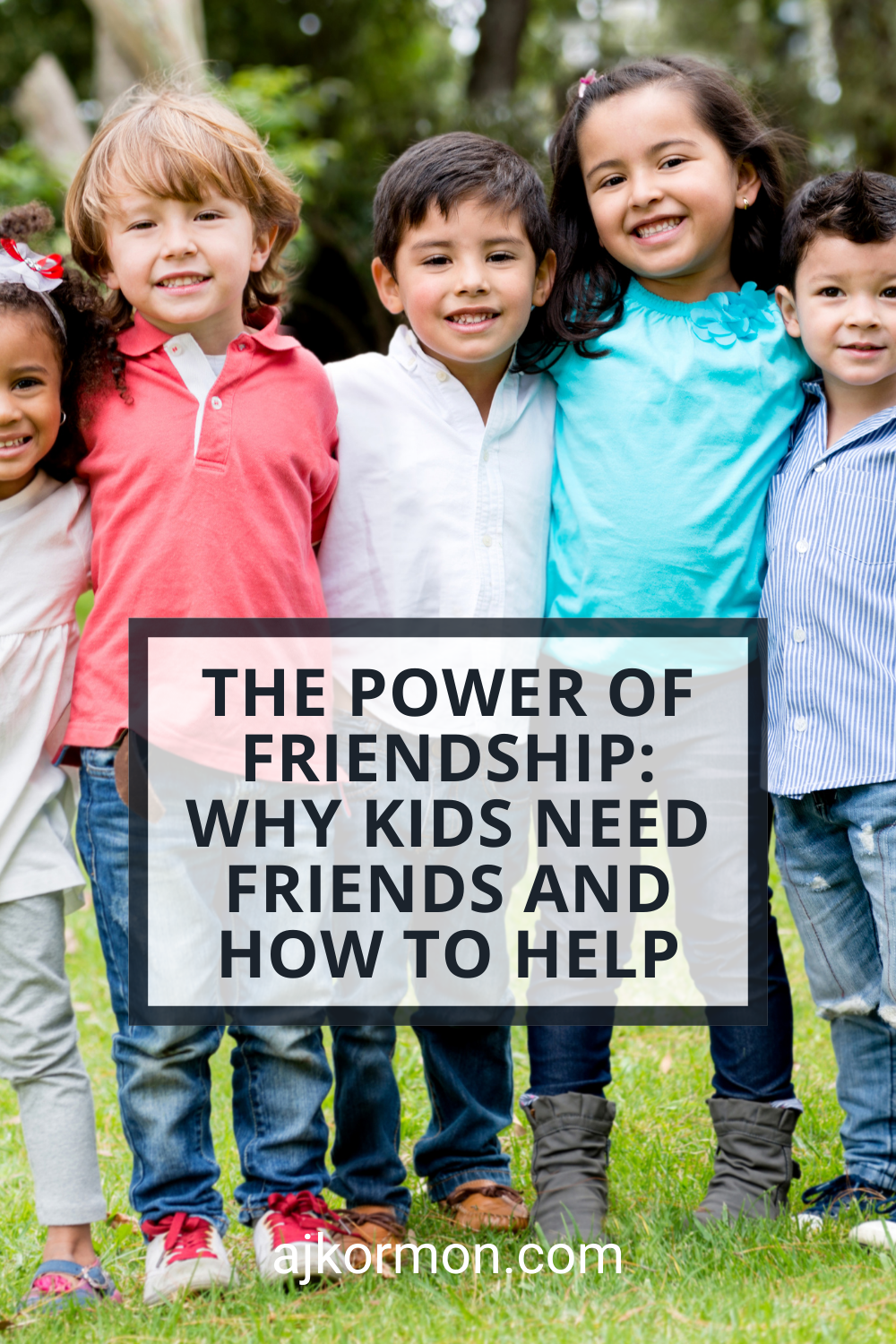One of the most important concepts many children's books explore is the incredible power of friendship. There's a reason for that. Friendship is incredibly important in a child's development. Here are a few facts about friendship and tips for how we can encourage strong, positive friendships for the children in our lives.
How Friendships Help Kids Grow
Friendships are a crucial part of a child's social and emotional world. Friendships aren't just about having fun (though that's important too!). They're like a training ground where children learn some of the most important life skills they'll ever need. From sharing toys in preschool to navigating complex social dynamics in middle school, friendships provide a space for kids to grow socially, emotionally, and even mentally.
Let's dive into some of the key ways friendships shape a child's development.
Social and Emotional Skills
Friends help children learn how to communicate, cooperate, share, empathize, and resolve those inevitable conflicts. These skills are essential for building strong relationships throughout their lives. Parents and teachers provide foundational support for social and emotional development in ways that differ from friend interactions. They offer guidance, modeling, and a safe space for practice. Parents, with their deep understanding of a child's personality, can tailor support and interventions, fostering self-awareness and emotional regulation. Teachers, within the structured classroom environment, offer opportunities for peer collaboration, leadership, and navigating group dynamics.
In contrast, friends provide a space for a child to apply these developing skills in a more equal setting. Friends allow for the messy and joyful exploration of social bonds, teaching flexibility, compromise, and the unique dynamics of fun and companionship that differ from the adult-child relationship.
Self-Esteem and Confidence
Good friends make children feel accepted, valued, and understood. This sense of belonging helps boost a child's confidence and self-image. Friends also have a way of making us feel like we can accomplish anything. They cheer us on when we try new things, celebrate our successes, and offer a shoulder to cry on when things don't go as planned. This unconditional support and belief helps build a child's confidence in their own abilities, encouraging them to take risks and step outside their comfort zone.
Mental Health Benefits
Friends offer companionship, support, and a fun outlet that reduces feelings of loneliness and boosts a child's overall sense of wellbeing. Friendships can also act as a buffer against stress and adversity. When children face difficult situations, whether it's a tough day at school, family problems, or worries about the future, having a close friend to turn to can make all the difference. Friends provide a listening ear, a sense of understanding, and sometimes help us come up with solutions or simply see the humor in a tough situation.
How Books Promote Friendship
Stories can be powerful tools in helping children understand and appreciate the value of friendship by providing relatable characters who model positive friendships. There are many stories that involve friends working together to solve a mystery, learning to forgive, or standing up for a friend. These narratives provide a safe space for kids to think about their own friendships and the qualities they value.
Tips for Supporting Friendships
Parents and teachers play a key role in fostering healthy friendships by creating opportunities for kids to be with their friends, modeling positive behaviors, and having open conversations about friendship.
Organize playdates, sign kids up for extracurricular activities, and encourage them to participate in community events where they can meet other children. Show your kids how to be a good friend by being kind, respectful, and trustworthy to your own friends and in your interactions with others. Have open conversations about what makes a good friend, how to deal with friendship conflicts, and challenges like moving away or making new friends.
Friendships enrich children's lives in countless ways. By understanding the importance of friendship and actively supporting kids in building these connections, we set them up for success in all areas of life. If you need any recommendations for stories about friendships please let us know in the comments or share your own recommendations.




Comments ()